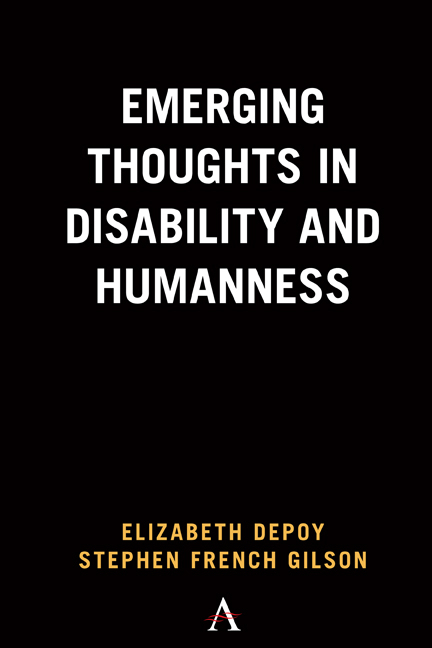Chapter 3 - Looking Back
Published online by Cambridge University Press: 13 May 2022
Summary
Many questions emerge and remain about which spectacles create insight into the history of disability as a challenge to humanness. As we approached this chapter and cast a wide reading net for it, clarity was not forthcoming from the many ways in which scholars have historicized the construct and longitude of disability. However, although there may be some intellectual outliers, from a synthetic gaze, the bulk of disability history, regardless of professed opposition to painting disability as organic, still foregrounds its history in impaired bodies (Hanes et al., 2018; Stiker, 1997). Yet, implied in much of the scholarship in disability studies are many questions regarding its history:
Is disability history the history of the atypical body?
Is disability history the history of the norm, the prototype, and its opposite?
Is disability history the history of beauty and its opposite?
Is disability history a series of longitudinal and geographic events related to changes in the prototype?
Is disability history theological, artistic, ethical?
Is disability history a chronicle of attitudes and intergroup relations?
Is disability history an evolutionary phenomenon?
Is disability history a history of rights, lack of rights, and human emancipation?
Is disability history the history of changing criteria for human worth over the years?
Is the history of disability a history of infrahumanization? Monstrosity? (Godden and Mittman, 2019)
Is disability history a history of eugenics? (Van Tirgt, 2019)
Is disability history the history of one's parenthood?
Is disability history the history of what social groups cannot handle among their midst (DePoy and Gilson, 2011)?
Is disability history the history of human incapacity (Stiker, 2002; 2019)?
Is disability history the history of control and containment?
Is disability history the history of punishment for immorality or sin?
Is disability history the history of disability as divergence from the human genome?
Is disability history the history of atypical neurology (Bryson, 2020)?
More recently, additional nodes and relationships have been added to this crowded intellectual network. While not exclusively historical in focus, these views relinquish the impaired body and thus beg for different histories than those already told.
- Type
- Chapter
- Information
- Emerging Thoughts in Disability and Humanness , pp. 17 - 32Publisher: Anthem PressPrint publication year: 2022



